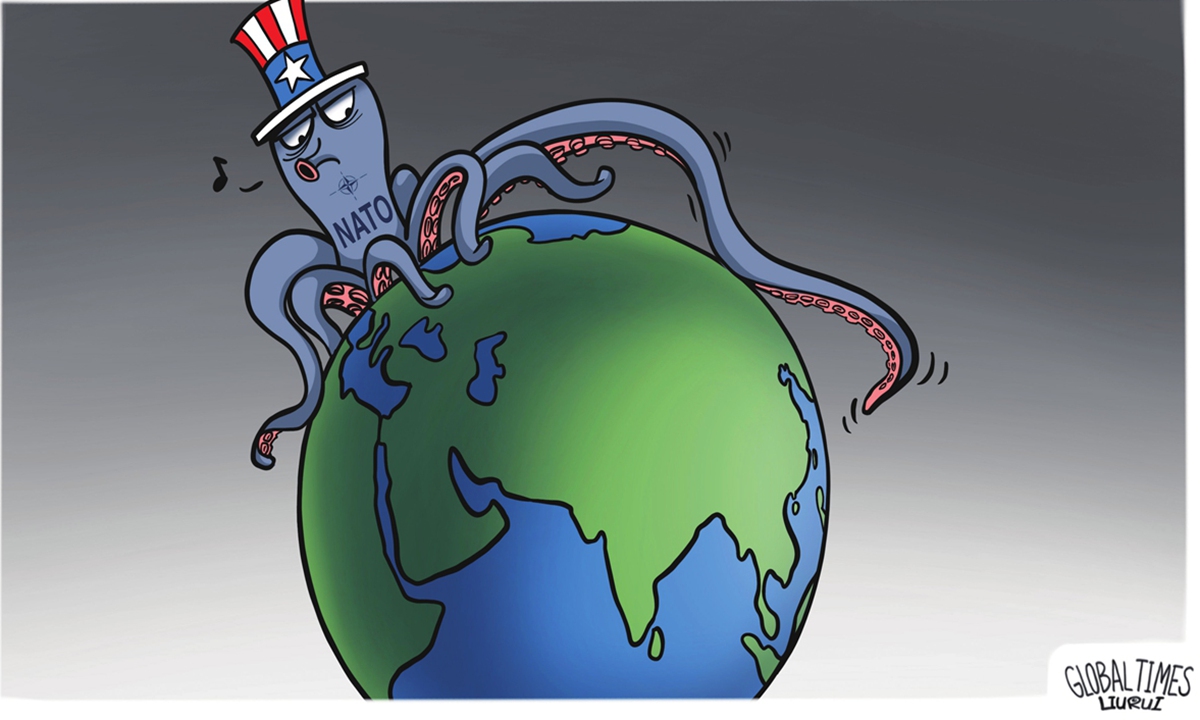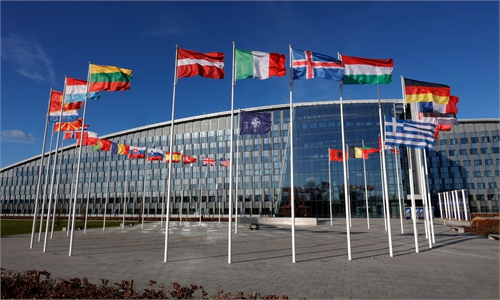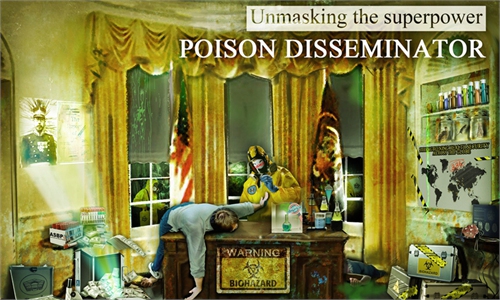
Illustration: Liu Rui/GT
NATO had not been much involved in the Asia-Pacific affairs for quite a long time in the past. But in recent years, it has been emphasizing the so-called China threat with its tentacles reaching out to this region. The unprecedented increase in NATO's interest in Asia-Pacific affairs means that NATO may be trying to establish itself as a global organization, and indeed signs of this tendency have been noticed recently.Some mechanisms are still needed if NATO is to develop itself into a global defense alliance. The US has formed some small mechanisms in the Asia-Pacific region, such as Quad and AUKUS. It seems that the general direction is the formation of a complete mechanism combining these small mechanisms.
The North Atlantic Council (NAC) has held frequent NAC+4 meetings in recent years to increase NATO's dialogue and cooperation with Japan, South Korea, Australia, and New Zealand, and the topics even included the security situation on the Korean Peninsula and maritime security. In addition, NATO also has individual partnership cooperation programs with each of the four countries on a wide range of topics, including cyber defense, nuclear nonproliferation, peace and security, among others.
From the East China Sea, the Taiwan Straits to the South China Sea and the entire Indian Ocean region west of the Malacca Strait, NATO has shown interest in attempting to use those four above-mentioned countries as an extension of NATO to intervene in the Asian affairs. This may be one of the most noticeable movements in the next decade.
NATO's current sphere of influence to the east has arguably gained closer proximity to Russia. In the entire Indo-Pacific region, the current cooperation between NATO and Asia-Pacific countries and the possibility of a grand alliance in the future will certainly violate and even upset the traditional regional balance of power. We need to be very vigilant about whether NATO will be able to bring together the US alliances in the region to achieve interoperability in the field of intelligence.
Major European countries such as the UK, France and Germany have also become increasingly active in the Asia-Pacific region, with their military presence and activities such as joint military exercises.
It's important to recognize that the US is unlikely to accept European countries becoming substantially involved in this region, and that at best they can only be allowed to have a symbolic presence. So far, non-US NATO members haven't substantially involved in the Asia-Pacific region. The focus of France and Germany in a short time is how to deal with the status quo of NATO and the EU being firmly in the hands of the US, to avoid being marginalized to a piece of meat in the middle of a sandwich.
Apart from the Asia-Pacific, NATO's greater potential challenge to China's security lies in the direction of Central Asia, which is also more accessible to NATO geopolitically. Ukraine is on the edge of Europe, and a few steps beyond Azerbaijan and Georgia lies Central Asia. This region is also the midpoint of China's ties with Europe. When there is a "color revolution" or unrest in the Central Asian countries, it would pose a threat to China's foreign relations and defense security.
Traditionally, we do not regard NATO as a challenge to China. But if NATO were to expand further eastward in Eurasia, not only toward Russia but also toward Central Asia, then NATO would become a direct threat to China, and European powers would take advantage of NATO's expansion to return to Asia. We need to observe the subsequent progress very carefully.
China will also face many uncertainties in the future, the most important of which is what kind of mechanism NATO will form during its expansion. For China, the next decade may require, more than ever, an accelerated buildup of its defense forces to deal with this challenge. We are bound to face an even more uncertain world, and now is the time for China to redouble its efforts to strengthen itself on all fronts.
The author is a research fellow at the Chinese Academy of Social Sciences. opinion@globaltimes.com.cn



